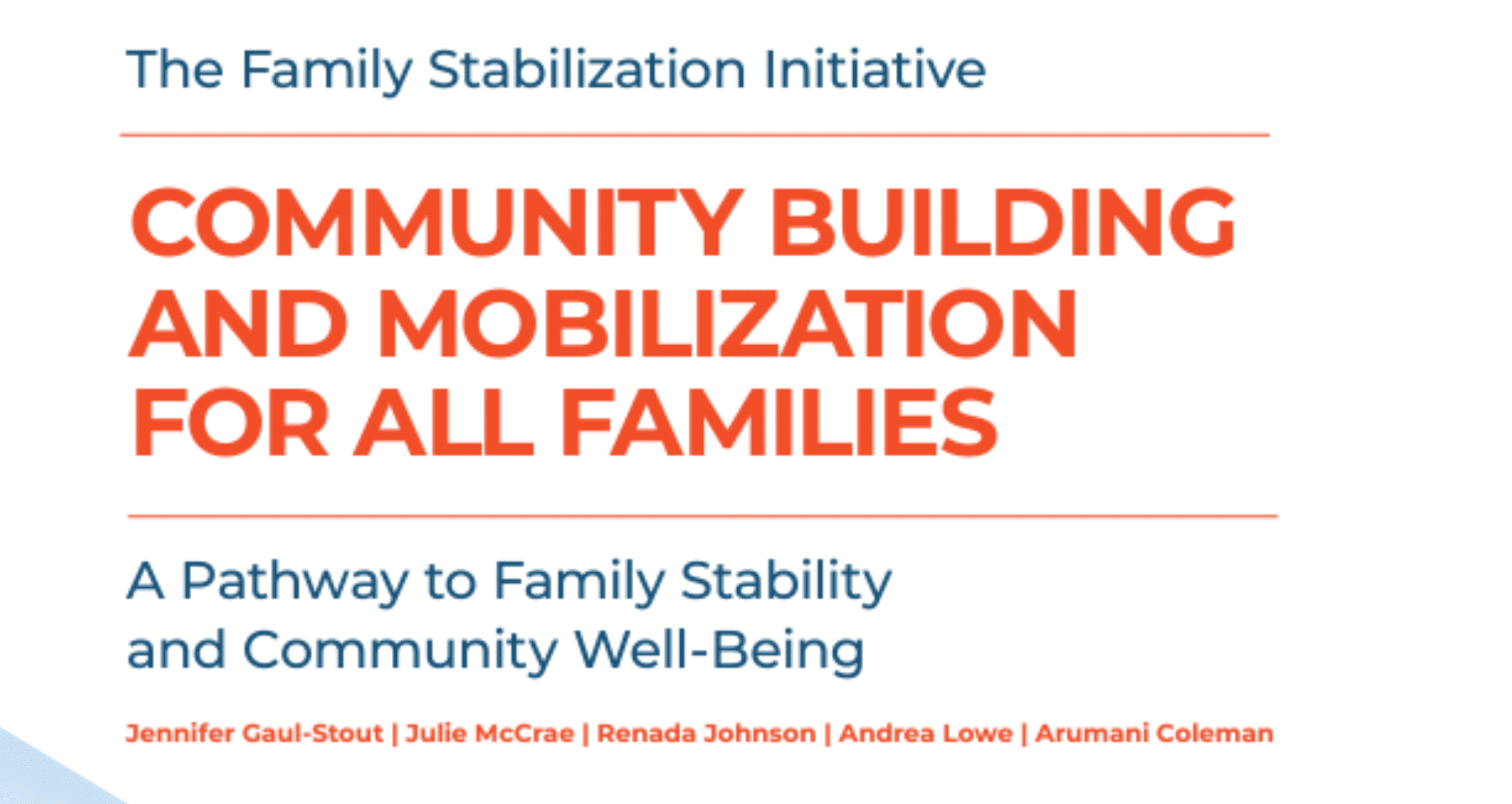Every day, families work hard to care for their children and build stable lives, often while navigating gaps in systems that weren’t designed with them at the center. If we want children to grow up in safe, stable, permanent family homes, we have to build communities where help is early, relationships are strong, and partners act together.
Our network of 300 health and human services organizations reaches one in 50 people in America each year. That reach gives us a unique ability to see both the barriers that threaten family stability and the strength, leadership, and innovation within communities themselves.
The Conditions Families Face
When affordable child care, mental health supports, or reliable access to food are out of reach, even the most determined efforts can become overwhelmed. These challenges reflect systems that too often step in after a crisis has unfolded, rather than investing in the conditions that help families thrive from the start. When support arrives late, crises can snowball—placing children at greater risk of long-term hardship and forcing families to carry burdens that should be shared by communities and systems. Research and experience show that when families have access to employment opportunities and strong supports within their communities, they are far more likely to be stable.
Laying the Foundation for Change
This understanding laid the foundation for the launch of our Family Stabilization Initiative (FSI) four years ago—a multi-pronged effort to build systems that put family well-being first. Through this initiative, we’ve partnered with six communities in four states to strengthen evidence-based wraparound programs that help families overcome crises and prevent unnecessary involvement in the child welfare system. To deepen and expand this work, we partnered with Chapin Hall to develop a practical new framework for the field: “Community Building and Mobilization for All Families: A Pathway to Family Stability.”
This new framework provides clear guidance for operationalizing key principles that address the root causes of instability and build on the inherent strengths of families and communities. It’s grounded in lived expertise, shaped by on-the-ground partnerships, and designed for practitioners and organizations committed to authentically engaging communities in partnership with families.
Guiding Principles
At our recent webinar, practitioners and nonprofit leaders explored five guiding principles that form the framework’s Theory of Change:
- People-driven Collaboration: Centering community members’ voices to co-create solutions that reflect local priorities and build resilient, long-term relationships.
- Asset-based Partnerships: Building on existing community strengths and networks, both traditional and nontraditional, to foster trust and sustainable change.
- Capacity Building: Investing in people and systems to create equitable, adaptable, and enduring community support structures.
- Shared Leadership: Promoting collective action, fair power-sharing, and lasting partnerships that enable communities to respond effectively and sustainably.
- Collaborative Evaluation: Co-developing goals, using both data and lived experience to measure progress, and creating feedback loops that ensure strategies evolve with community needs.
These principles are already in practice through FSI sites, including AK Child & Family in Alaska, Lutheran Community Services Northwest in Washington state, Lutheran Social Services of South Dakota, and St. John’s United in Montana. Each organization has demonstrated how community-driven strategies can lead to better, measurable outcomes for children and families.
Why This Framework Matters
The framework is a set of simple practices that help communities lead and help organizations resource what already works. It doesn’t replace services — it creates the conditions that make them accessible, trusted, and effective.
It’s a way of working that weaves relationships, local leadership, and data into every decision. Transactional responses meet immediate needs, but transformational relationships create the conditions for lasting change. Community building helps us move from delivering services to co-creating solutions, calling us to practice humility and share power.
Community building is prevention with people at the center.
Join Us
The well-being of children and families is a shared responsibility that belongs to everyone: families, schools, service agencies, government, business, and the faith community alike. As we continue to advance this work through the FSI framework, we invite you to join us.
We encourage Lutheran Services in America members to explore how these five principles can strengthen your own community partnerships. We also welcome the chance to create new partnerships with outside organizations willing to help us scale this framework to more communities nationwide to advance family stability.
The strength of this framework lies in what happens next — in how each of us chooses to lead, connect, and act. Community building isn’t extra work; it’s the work that makes lasting change possible.
Renada Johnson is Senior Director of Children, Youth & Family Initiatives at Lutheran Services in America.
